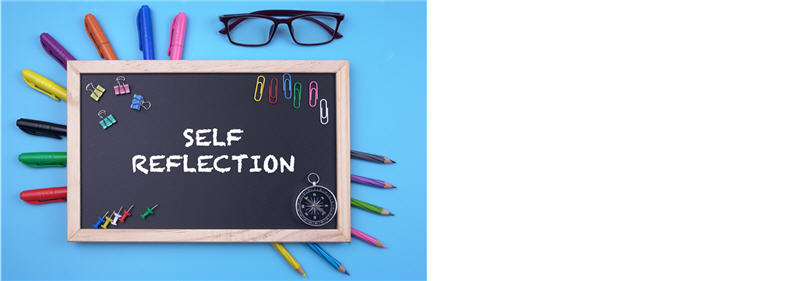The seafarer of today is evaluated on their performance on a near daily basis, this is by either another person or by technology. But perhaps the most valuable and often overlooked evaluation of an individual is by themselves. In other words, self-reflection of one's own performance.
The Cambridge Dictionary defines self-reflection as 'the activity of thinking about your own feelings and behaviour, and the reasons that may lie behind them'.
So, what does this mean and how can it help you to be safer at work?
In practice self-reflection is a way of assessing yourself, by thinking about how you behave and how you work, including your strengths and weaknesses. This is not an exercise in being negative about who you are, but it does require self-honesty and being critical, to identify areas where you are able to improve your personal, professional skills and/or effectiveness rather than just doing something because that is the way you have always done it.
Questions to ask yourself
The first step is to ask yourself the questions which will identify what makes you the person you are.
- What are my strengths? - Am I focused in my work? Do I perform my duties in the most time efficient manner?
- What are my weaknesses? - Am I disorganised? Do I cut corners when following procedures?
- What skills do I have and what am I good at?
- What problems do I have? What responsibilities or distractions exist in my life which negatively affect my work or professional development?
- What have I achieved this week; this month; this year?
- What do I want to achieve this week; this month; this year?
- Are there things in my life which stop me from being happy? What has been a disappointment?
- What makes me happy?
Being honest with yourself and answering the questions truthfully will allow you to identify changes you might need to make to improve.
A continuous mindset
This is not meant to be another task to be squeezed into an already busy shipboard schedule as a daily or weekly 'must do' activity. Rather a continuous mindset which is practised all the time, sometimes passively and other times it may be helpful to record thoughts or difficulties along with mechanisms or solutions to tasks or objectives which need to be overcome. It may not be easy to look at yourself in the mirror to start with, but it will become easier in time.
A safer working environment
The aim of self-reflection is to consciously develop your behaviour, skills, efficiency and happiness by making positive changes in your life. Reflecting on what you are doing will lead to a safer working environment for you and your colleagues, promoting a culture of best practice and avoiding bad habits such as by-passing procedures, whilst at the same time create empowerment to make suggestion for improvements of operations and safety.
Self-reflection is never about taking shortcuts to get things done quickly. It is about improving your performance, safety, empowerment, receptiveness to change, whether this is at home or at work. It could also increase motivation and efficient strategy development for both setting and achieving professional and personal goals in the short term and longer term.
